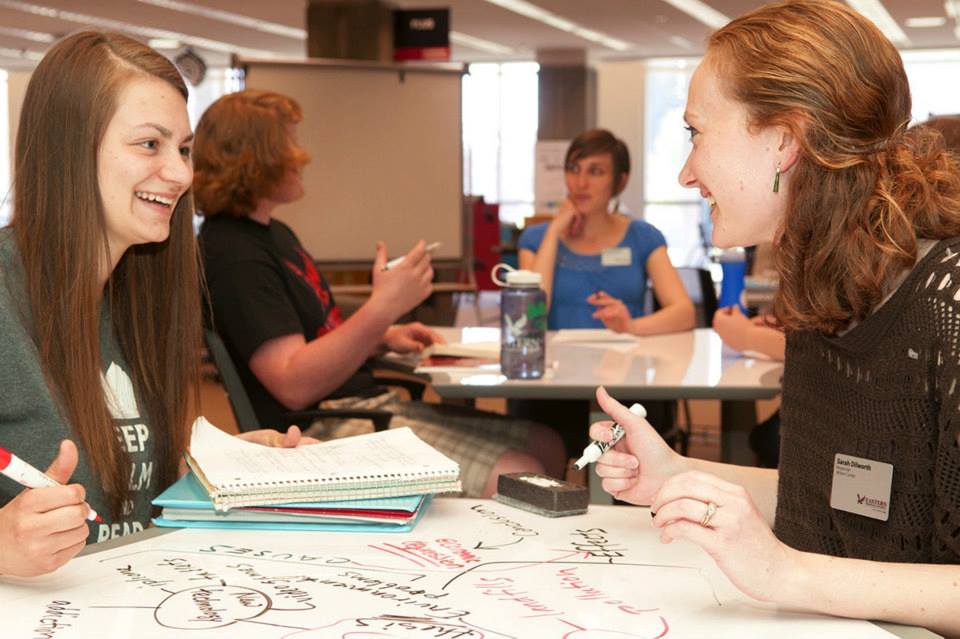Writing is a Process!
| Successful writers use a writing process. This process consists of revising, editing, and proofreading to create writing that is clear, organized, and effective. |
Revising
- Set aside your writing for a few days (or hours, if you procrastinated).
- Concentrate on the overall content, focus, and organization.
- Think about the big picture. What do you want the reader to know about your topic? Do the topic sentences complement the thesis?
- Ask yourself questions: Am I communicating my ideas effectively? Who will be reading this? What are their needs and expectations?
Editing
- Don’t edit too soon.
- Look at your transitions. Try making a paragraph using only your thesis and topic sentences. Does the paragraph make sense?
- Go over your paper sentence by sentence. Are the ideas stated clearly? Look at word choice and sentence structure.
- Try reading your paper aloud—hearing it helps make sure your ideas are stated clearly.
Proofreading
- Check for one type of error at a time—don’t overwhelm yourself.
- Are you making the same errors over and over? Identify them.
- You are smarter than your word processor—don’t rely on it to correct mistakes.
- Check your formatting!
- An extra set of eyes always helps. Swap papers with a friend, a classmate, or…pick a couple of error types to focus on and make a Writers’ Center Appointment!
Flow
Have you been told your paper doesn't flow? Often, the problem is that your sentences are awkward. You might be trying to say too much, or you might not have said enough. Remember: you want to have one subject and one predicate in each sentence. Any more or less than that and you've got a problem.
The best way to find and correct awkward or run-on sentences is to read your paper out loud. You can only pause at punctuation, and you can only breathe at end punctuation (periods, question marks and exclamation points). If you're running out of breath, you've definitely got a run-on. Alternatively, if you're hyperventilating because you're breathing too often, your sentences are short and choppy. Make sure your writing sounds natural. If it doesn't sound right, it isn't right. Your paper should sound smooth, as if you were talking to someone.
In the writing world, we sometimes use the term sentence clarity, rather than flow, to describe awkward writing.
Click HERE for strategies to improve clarity.
Click HERE for good examples to help you combine short, choppy sentences.
Click HERE for a method to shorten up wordy sentences.
Contact Us

writersctr@ewu.edu
509.359.2779
Cheney Campus
JFK Library Learning Commons
Spokane Campus
Catalyst Building C451 and C452